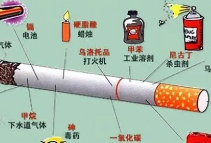难不成Gucci是想用塑料皮草让世界窒息?
撰文:国际毛皮协会首席执行官 马克·欧顿

国际毛皮协会首席执行官 马克·欧顿
时尚品牌Gucci近日宣布将自2018年起停止使用天然毛皮,并将寻找其它替代品,其中包括人造塑料皮草。但我却发现这些争论的观点让人很困惑。特别是Gucci首席执行官马可•比扎里(Marco Bizzarri)表示,此举是该品牌对“可持续性”作出的承诺。
这种观点我不反对。但是在“可持续性”上,它却被完全误导了。事实上,停止使用天然毛皮对于“可持续性”来说毫无意义。石油和塑料衍生产出的人造塑料皮草对环境极其有害,不仅不能自然生物降解还会对生态环境和野生动物造成极为负面的影响。

事实上,停止使用天然毛皮对于“可持续性”来说毫无意义。
相比而言,天然毛皮可以传承世代,而化工合成的人造皮草则会对环境造成严重危害。毛皮服装可以保存几十年,即使最终被淘汰也是可以完全自然降解的。人造塑料皮草则很容易被丢弃,最终还会成为垃圾填埋场的污染。

人造塑料皮草最终还会成为垃圾填埋场的污染
这显然也不是吸引具有环保意识千禧一代的行为。坦白来说,如此重要的时尚品牌经过认真考虑后,却想通过人造塑料皮草“来为环境做贡献”,这既让人惊讶又令人失望。要知道,当人造塑料皮草被清洁时,成千上万的细小塑料纤维被释放到废水中,最终汇入海洋而被鱼、哺乳动物和海鸟误食。
与此同时,Bizzarri先生的另一番言论更让我困惑。他声称“毛皮不再时尚”,然而这却没有任何理论依据。要知道,就在最近的国际时装周发布会期间,仍有超过三分之二的品牌使用了天然毛皮,并带来独特新颖的创意让人兴奋。天然毛皮可以被裁切、染色、手工制作,而化工合成的石油衍生物--人造塑料皮草却只能空想。

天然毛皮时尚产品
Bizzarri先生还声称Gucci计划拍卖剩余库存的天然毛皮,并将所得利润捐给动物保护组织。但是如果购买毛皮真的如他所言这般不道德,那么谁还会去购买他拍卖的毛皮?事实上,仍有很多顶尖设计师在使用天然毛皮这种自然材料,国际毛皮协会也正在与世界上最受尊敬的时装品牌们合作,一起开发突破材料界限的技术从而使毛皮应用于高级定制和日常穿着,从而确保全球毛皮行业生产出最可持续并最具道德规范的产品。
为了避免我们遗忘,假如“可持续性”才是本次争论的焦点,那么野生毛皮销售不仅为偏远土著社区提供了重要的经济收入还有助于当地的环境保护。此外,毛皮动物养殖的饲料来自肉类、鱼类和奶制品等行业的剩余产物—这是一种更加可持续和合乎道德规范的替代方法。

毛皮养殖业还是世界上对动物福利标准要求最严格的行业之一。
毛皮养殖农场产生的废弃物也能带来其他环境效益,这其中包括生物燃料的生产以减少对化石燃料的需求,以及农业化肥的生产以取代需耗高能的人造肥料。毛皮养殖业还是世界上对动物福利标准要求最严格的行业之一。
所以,如果“可持续性”才是最终目标,那么请不要被愚弄甚至相信这些关于天然毛皮的错误观点。在未来,我们永远欢迎Gucci重拾天然毛皮,也希望它和其他所有的时尚品牌明白:只有天然毛皮才是真正可持续性的最佳选择。

只有天然毛皮才是真正可持续性的最佳选择
原文:Does Gucci really want to choke the world with plastic fur?
By International Fur Federation CEO, Mark Oaten
Fashion brand Gucci has announced plans to go fur-free from 2018 and will instead be looking into alternatives, including fake plastic fur.
Now, I’m the last person to prevent a business or individual from making up their own mind about fur and employing freedom of choice (a stance sadly not shared by the bullies and closed-minded activists of PETA and the like), but I find this move rather mystifying because of the main argument used.
Specifically, chief executive Marco Bizzarri said the move was due to the brand’s commitment to ‘sustainability’.
I of course applaud such a viewpoint. But in this case, unfortunately, it’s utterly misguided. The truth is that banning real fur makes absolutely no sense in terms of sustainability. Petrol-based fake plastic fur is extremely harmful to the environment, isn't biodegradable and negatively impacts wildlife thanks to the petroleum and plastics used to produce it.
By comparison, real fur can last for generations compared to the synthetic, environmentally-damaging alternatives. Fur garments can be kept for decades and are completely biodegradable when they are eventually discarded. Plastic fakes on the other hand are thrown away regularly and end up polluting landfills.
That’s hardly the type of behaviour to appeal to environmentally-conscious millennials.
Frankly, it’s both surprising and disappointing that a major fashion brand would want to “do better for the environment” by seriously considering working with plastic fur. Bear in mind as well that when you wash those items, hundreds of thousands of tiny plastic lint fibres are released into waste water, end up in oceans and get eaten by fish, mammals and sea birds.
At the same time, Mr Bizzarri’s other comments left me rather bemused. For one, saying that fur is “not modern” is unfounded. More than two-thirds of recent international catwalks featured fur in fresh and exciting forms. Real fur can be cut, dyed and crafted in ways that synthetic, petrol-based plastic fur can only dream of.
He also said that Gucci was planning to auction off its remaining fur supplies and give the profits to animal rights groups. If buying fur is as unethical as he seems to think, one wonders who he expects to bid on it?
The truth is that many top designers continue to use the natural material, and the IFF is working with the most respected fashion houses in the world to develop boundary-pushing techniques to create haute couture and every day fashion. It also ensures the fur industry worldwide produces the most sustainable, ethically-sourced pelts possible.
And lest we forget, if sustainability is indeed the name of the game, the sale of wild fur both provides vital income for remote indigenous communities and helps toward managing their local environments. In addition, farmed fur animals eat food prepared from the waste products of the meat, fish and dairy processing industries – a much more sustainable and ethical alternative to dumping this excess.
Waste from fur farms can produce other environmental benefits too. These include the production of biofuel to reduce the demand for fossil fuels and the production of agricultural fertilisers to replace high-energy manufactured ones. Fur farming also has some of the most stringent controls for animal welfare found in any industry worldwide.
So if sustainability is the goal, don’t be fooled into thinking negatively about fur. We will always welcome Gucci back to fur in the future, and hope that it and all other fashion brands see that real fur is the only truly sustainable option.
编辑:小鱼 来源:北京都市网
相关新闻
- 探寻死海护肤科技 Natural Sea Beauty开启身体肌肤年轻态2021-09-01
- OHOL深圳首家新零售智慧珠宝店盛大开业2021-09-01
- 全新定义可持续新风向,adidas与Allbirds宣布战略合作2020-05-29
- 夏天小凉鞋都给我穿起来 你想要的都在这儿2019-06-08
- 学钟楚曦穿出好看的“直角肩”2019-06-08












